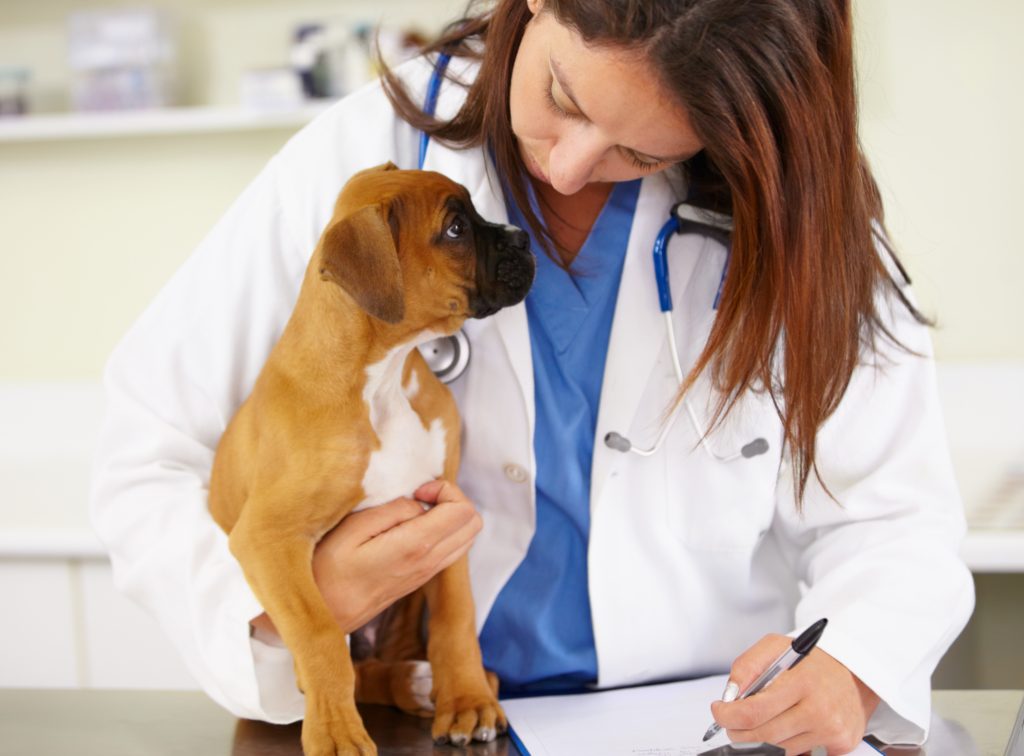Finding the right veterinarian can feel daunting, especially for first-time pet owners. With so many options available, many individuals wonder how to find a good veterinarian who offers both professional expertise and compassionate care. This decision impacts the long-term health and well-being of your dog or cat.
Choosing the right vet for your pet involves more than just finding the best veterinarian near me online. It requires thoughtful consideration of a clinic’s qualifications, communication style, and overall approach to veterinary care. A trustworthy vet becomes a long-term partner in managing everything from routine checkups to emergency care and chronic health issues.
In this guide, you’ll find practical tips for picking a vet, along with clear guidance on what to look for in a vet, including the core qualities of a good vet. We’ll also explore how to use vet reviews and ratings to evaluate a local veterinary clinic, and share a complete first vet visit checklist to help you prepare for your initial vet appointment with confidence.
Whether you’re caring for a new puppy, a senior cat, or any companion in between, this guide will help you make informed choices every step of the way.
Why Choosing the Right Vet for Your Pet Matters
A great vet does more than just treat illness, they help your pet stay healthy for life. From routine vet visits to emergency care, the right veterinary practice plays a key role in your pet’s health. They can spot early signs of a health issue before it becomes serious. Regular checkups can catch problems with your pet’s heart and lungs, teeth, or digestion, helping you avoid costly treatments later on.
But choosing the right vet for your pet goes beyond medical skills. A good vet listens to your concerns, explains options clearly, and treats your pet with patience and kindness. This kind of trust takes time and builds a strong relationship between you, your pet, and the clinic.
In contrast, an average vet might rush through appointments, overlook small issues, or leave you feeling unsure. Learning how to choose a vet matters—especially because it affects the well-being of dogs and cats whom we love.
What to Look for in a Vet
Even the smallest details matter when finding a vet for your dog or your pet. The qualities of a good vet go beyond medical knowledge; they should be calm, gentle with animals, and willing to listen. A good vet explains treatment options clearly, answers your questions without rushing, and helps you feel confident about your pet’s care. If your dog is nervous during vet visits, a caring and patient approach can make all the difference.
The veterinarian is important, but the clinic staff also plays a key role. They should be respectful, professional, and ready to assist. The veterinary clinic itself should be clean, organized, and calm. A positive environment helps reduce stress for both pets and their owners.
Checking vet reviews and ratings can give insight into how the veterinary practice operates daily. In short, what to look for in a vet includes both professional expertise and a compassionate attitude. These are qualities every pet parent should expect from their veterinarian.
Preparing for Your First Vet Visit
A little preparation goes a long way when taking your pet to a new veterinary clinic. Whether you’ve just managed to find a vet or you’re scheduling a regular checkup, having a checklist helps the appointment go smoothly.
Use this first vet visit checklist to make sure you’re ready:
- Leash and collar for dogs, or a secure dog carrier or crate for smaller pets
- Stool sample as fresh as possible, especially if your vet requests one in advance
- Your pet’s vaccination records and any past medical history
- A list of important questions to ask the vet (e.g., vet recommendations regarding diet, spaying or neutering, behavior)
- A chew toy for distraction, especially if your dog gets anxious in new places
This simple list helps pet owners stay organized and makes it easier for the veterinary practice to provide the best care possible.
Questions to Ask at the Vet Clinic
Before your vet appointment, prepare a list of important questions to make the most of your visit. Good communication helps you understand the vet’s approach and ensures your pet receives the right veterinary care.
Here are a few helpful questions pet parents can ask:
- What is your approach to preventive care?
- What is your protocol for handling emergencies outside regular clinic hours?
- Can you describe your clinical experience with this specific breed of dog or cat?
- How do you monitor issues with the heart and lungs?
- What symptoms or behavioral changes should I monitor at home that may indicate a potential health issue?
- Do you follow American Veterinary Medical Association guidelines?
Asking the right questions can help you feel confident in your choice. It also shows whether the veterinary clinic is a good fit for your pet’s needs.
Red Flags to Watch Out For
Not every veterinary clinic provides the level of care your pet deserves.
Be cautious if you notice any of the following:
- The vet clinic appears unclean or disorganized.
- They rush the exams and dismiss your concerns.
- The veterinary practice fails to explain diagnoses, procedures, or medications clearly.
- Staff members show a lack of empathy or seem impatient with pet owners or animals.
- The clinic has no clear process for follow-ups or after-hours support.
- The clinic does not follow American Veterinary Medical Association guidelines.
Vet-Approved Wisdom
Why Yearly Checkups Matter Even When Your Pet Looks Healthy
The American Veterinary Medical Association (AVMA) recommends scheduling a full checkup for your pet at least once a year. This applies even if they appear to be in perfect health. These regular vet visits help identify early signs of illness, including issues with the heart and lungs, weight changes, or unusual behavior. They also ensure your pet stays current on vaccinations and preventive care.
Trust Your Judgment When Choosing a Veterinarian
A good veterinarian should be a trusted partner in your pet’s long-term health. If your experience with a veterinary clinic raises concerns, pay attention. Poor communication, lack of transparency, or limited attention to your pet’s needs are warning signs. In such cases, it is appropriate to look for another provider.
Pet owners should feel confident in the care their animals receive. Knowing how to find a good veterinarian includes recognizing when it is time to make a change. Prioritize both clinical expertise and compassionate care when selecting the right provider for your dog or cat.













